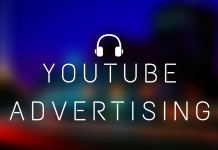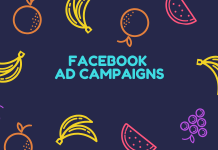Writing great headlines is a talent. Or not – well, whether or not you take it as a talent, there is something you have to know in order to write better ad headlines and catch the attention of your buyers through it.
What people pay attention first? Maybe images – and maybe headlines. Right, we have talked a lot about the content to be an important part of everything, that it has to be unique and interesting and informative and so on. But most of the times, let’s just admit it, it’s the headline that drives the reader to your blog and to your content. And frankly speaking, if not the headline, people could just have skipped your content and passed into another thing.

People using internet every day (and we hardly imagine many people not using internet every day) would understand what a struggle it Is to search something or go through some news feed and find so many articles. Have you noticed how you decide to go on with reading this or that article? If you didn’t we would advise you to go on with an experiment like this and be more careful.
If you did: then maybe your answer will be – those are the headlines that bring us somewhere.
So, how do we write engaging and great headlines not only for our content, but also for ads?
Each word is being capitalized
Well, we have decided to start with the less important one – with the technical one, to make the things start easier for you. One of the things that people may think users don’t pay attention to is the capitalization of the words. Hm… who knows? Maybe people in reality do not even pay attention to it, but the statistics shows that the ads which have their headlines with capital letters do get more clicks, rather than the ones having small letters.
Including keyword phrase
If you are advertising a “watch” – your headline should include the keyword watch. Well, that sounds too easy, right? Why would I add there anything else? But people still do: they may add more non-relative keywords in order to make the title more interesting and engaging. However, all we have to do now is differentiating the goal of the ad: do you want to get more users (doesn’t matter what they will do at the end of the ad) or do you want to get users which came exactly for your product and will most probably continue with their actions if they like the product?
In both cases you have several things to do: for the first case you are paying money for your ad to get more traffic. This is a case we wouldn’t like to do if you are trying to sell something. Well, if you are selling a product, having a goal of engaging random 10 users may just work only If 1 persons decides to buy it. And this will be your luck. However, if you use the second case – that is to say, have a headline of your ad in a way that targets special people, only the users who are really interested in buying that product will come to your page. The possibility, that your ad will come to its effective end with the purchase of the use is higher, then in the first case.
“Top” and “Best” lists
If we are discussing only the second case (when you are using exact keywords in your ad headline) then go on with using the words such as “Top” and “Best”. People like lists: especially if they are showing the best things of a place, top books/ films/ places/ countries etc. There are so many things, that your headline, including those words into the list will have a better engaging rate, rather than without those words.
You can make another experiment with this as well: just go on through different websites and blogs and see which articles you open to read most. Are those the ones which include list? Are they including those “Best” and “top” words. Great, then go on using them in your headlines as well.
Simple language and humour
Well, saying to use a simple language can be a little bit controversial. If you are writing an article about some difficult physical or mathematical innovations, most probably your headline will be something of that kind. And it is normal – you don’t have to simplify it, because your aim is to target the people from that sphere. However, if you are writing something general and are more to approach everyone- doesn’t matter the professions, then you can go on with using a little bit more humour and simple language.
You are not obliged to use both in a headline: you can just go on with being simple in the ad headline and then continuing with being more fun and simple in the content. This will help you attract more people into your website and get more impressions than you were doing before.
Other tricks to use are: engaging readers by asking questions, be careful to the grammar and punctuation, attract the users by promising things (only if you really promise them).
We hope that these tips will help you throughout the implementation of that difficult task of writing an ad headline. Good luck and have a good headline hunting!






